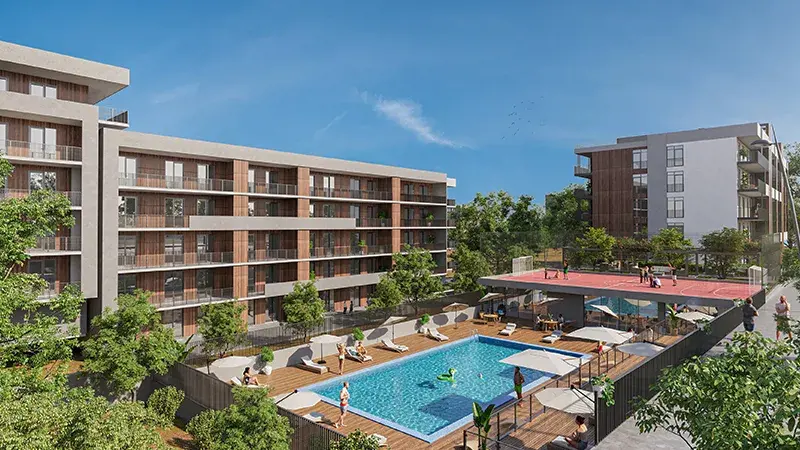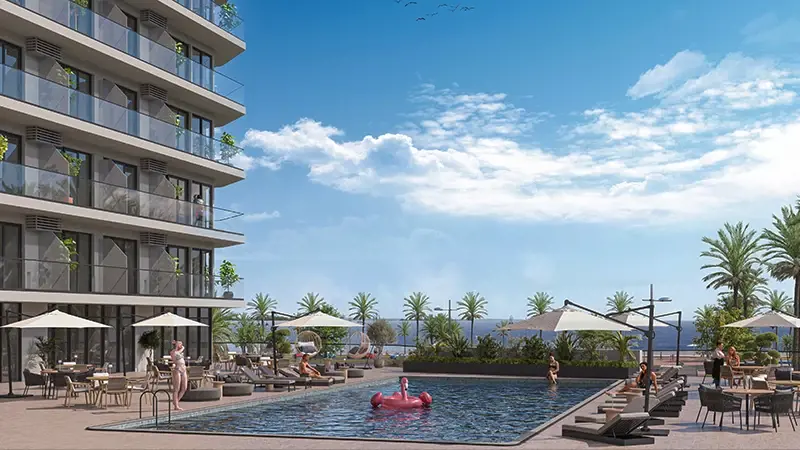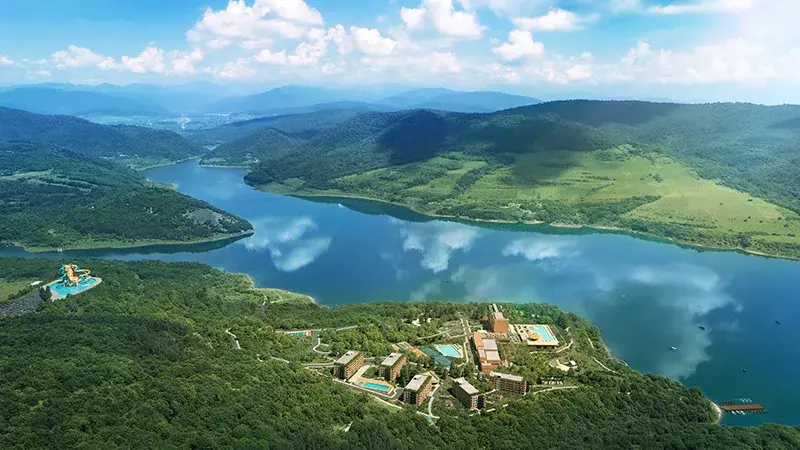Can Foreigners Buy Property in Georgia and Other FAQ by Non-Locals
#Other
Georgia has been attracting a lot of interest as a destination for real estate investment recently. Its strategic location, growing economy, and - as of right now - somewhat affordable property market compared to other major European cities, many non-locals are interested in investing in real estate in Tbilisi, Batumi and beyond.
The FAQ below is going to cover the most common questions foreigners have asked us about purchasing property in Georgia as a non-local.
Can foreigners buy property in Tbilisi, Georgia?
Yes. Let’s get the biggest one out of the way. The answer to the ever-present “can a foreigner buy property in Tbilisi” question is a resounding yes. The Georgian legal system generally doesn’t differentiate much between foreign nationals and locals when it comes to buying real estate. Foreigners can buy residential apartments, houses, and commercial buildings, with full ownership rights that allow them to own, use, and sell the real estate as they see fit. There’s only one exception to the rule and that’s agricultural land.
So if you’re looking to purchase office spaces, hotel rooms, or luxury apartments in Georgia - you’ve got free rein: if it’s selling, it’s highly likely you can buy it without a single hitch in the process. But if you’re planning to buy your own vineyard - well, that might be complicated.
Can foreigners buy a house in Georgia without being residents?
Absolutely! As we’ve already mentioned, there are no requirements for a person to hold Georgian residency status to buy real estate. Foreign nationals can buy almost all types of real estate. And they can do it not only as non-residents but entirely remotely through a legally appointed representative holding a Power of Attorney (POA) - i.e. you don’t even need to be in Georgia to buy real estate in Georgia.
This flexibility makes it significantly easier for international investors to capitalize on the Georgian real estate market compared to many other European countries. If you want to get a more in-depth understanding of the process, read our real estate investing guide in Tbilisi, capital of Gerogia - it covers most key points. If you play your cards right, you might not even need to manage your newly acquired property.
For example, if you buy into a development project like Archi Ramada Batumi, you purchase management along with the apartment. Archi Ramada Batumi is located just 150 meters from the Black Sea beach, and offers turnkey solutions with units delivered fully renovated, furnished, and equipped. It also provides extensive hotel-style amenities including a pool, restaurant, casino, and spa facilities.
Is it safe to buy property in Georgia (country)?

Georgia has created quite a secure environment for investment, with several key factors protecting prospective investors:
- Legal Protection: Property rights are constitutionally protected
- Efficient Registration: The current registration system is governed by the National Agency of Public Registry (NAPR), which is generally rated as highly efficient and fully transparent
- Favorable Business Climate: Georgia consistently ranks highly in international indices for ease of doing business
The property rights cover all types of real estate in Georgia, from residential apartments to commercial developments, so regardless of the type of property they’re buying, investors know they’re working within a stable framework of ownership.
Despite these strengths, potential risks exist including political or regional factors, and occasional bureaucratic inefficiencies. Thorough due diligence before purchase remains crucial to mitigate risks related to unclear titles or boundary disputes.
In developing areas like the Isani district, projects such as Archi Isani 2 offer modern housing options in a green, quiet setting with good transport links, including proximity to the metro/rail/bus hub, providing both quality and connectivity for residents.
What type of foreigners can own property in Georgia?
Here’s who real estate ownership in Georgia is open to:
- Georgian citizens (unrestricted)
- Foreign citizens and stateless persons (except agricultural land)
- Georgian legal entities
- Foreign legal entities (again, except agricultural land)
- Georgian state and municipalities
The Georgian Constitution protects and guarantees the right to possess and inherit property. There are specific provisions allowing foreigners to own property as personal ownership.
What are the taxes on buying property in Georgia for foreigners?
Foreigners buying real estate in Georgia face relatively low direct acquisition taxes compared to many international markets:
|
Tax/Fee Type |
Estimated Cost |
Notes |
|
Transfer Tax |
None |
Georgia does not levy specific transfer tax |
|
VAT (18%) |
Applicable in specific cases |
Primarily when purchasing from VAT-registered developers |
|
Registration Fees |
~50 GEL (standard) / ~150-200 GEL (expedited) |
Mandatory fees paid to NAPR |
|
Notary Fees |
100-200+ GEL (Variable) |
Optional if signed at NAPR; can be higher based on value |
|
Legal Fees |
Variable |
Highly recommended for due diligence, contract review |
What are the property taxes and other recurring costs for non-resident owners?

Non-residents pay the same annual costs as Georgian citizens. It depends on whether they fall into the applicable income bracket:
Annual Property Tax (Buildings): Based on the market value and owner's annual household income:
- Income below 40,000 GEL: 0% (Exempt)
- Income between 40,000-100,000 GEL: 0.05% to 0.2% of market value
- Income above 100,000 GEL: 0.8% to 1% of market value
Land Tax: Calculated separately based on location and classification.
Other Recurring Costs: Utilities, maintenance fees (especially in newer complexes), optional insurance, and potential property management fees.
What are the common steps involved in the property buying process?
The process for non-residents is generally straightforward:
- Property Search & Selection: At this stage you’ll identify suitable properties for sale in Tbilisi, then after due consideration, you’ll move onto the actual acquisition process
- Due Diligence: A non-mandatory but still critical step best conducted with a qualified Georgian lawyer
- Negotiation & Making the Offer: Hashing out the details, such as purchase price, payment method, length, and terms
- Purchase Agreement: Drafting and signing a formal Sale and Purchase Agreement
- Payment: Transferring funds according to the agreement terms
- Registration at NAPR: Submitting documents to officially register ownership
- Issuance of Ownership Certificate: Confirming legal title
Can owning property help obtain residency or citizenship?
You cannot get citizenship by simply acquiring real estate, but it will certainly make your legal stay in the country much easier.
Owning real estate valued over $100,000 can help you obtain temporary legal residency in Georgia. This permit can be extended to immediate family members and is initially granted for 6 months to 1 year, with annual renewal options.
The path to permanent residency typically requires continuous legal residence in Georgia for 6-10 years. A higher investment of at least $300,000 can significantly speed up the process.
As for the Georgian citizenship, specifically, it’s typically acquired through naturalization after prolonged legal residency (often 10 years), demonstrating integration, proving income source, and potentially requiring renunciation of previous citizenships.
What is the process for a non-resident to sell their property?
The selling process mirrors the buying process in reverse. You’re free to sell as you see fit - and sell it to whom you see fit (as long as they’re on the abovementioned list, which, as you’ve already seen, is pretty extensive).
The primary consideration is tax on any profit realized:
- Residential Property: If sold within 2 years of acquisition, the gain is taxed at 5%. If held for 2+ years, generally exempt from income tax.
- Non-Residential Property: Typically taxed at the standard personal income tax rate of 20%.
Are there any restrictions on foreigners when buying property?

The most significant restriction concerns agricultural land. The Constitution and the Organic Law explicitly prohibit the direct purchase of agricultural land by foreign citizens, stateless persons, foreign-registered legal entities, and Georgian legal entities established by foreigners.
Understanding these distinctions is crucial for anyone who intends to purchase large-scale commercial property in Georgia, especially in a less developed area - zoning and land classification directly impact permissible usage and ownership rights.
Recent legislation (SB 420 - 2024) introduced another restriction, prohibiting certain "nonresident aliens" from acquiring agricultural land or any land (excluding residential property) within a specified radius of military bases, installations, or airports.
Are there any restrictions on renting out property?
Foreign nationals who own real estate in Georgia are generally permitted to rent it out as they see fit. Taxation depends on the purpose:
- Residential Rentals: Taxed at a favorable flat rate of 5% on gross rental income
- Commercial/Other Rentals: Subject to the standard personal income tax rate of 20% on net rental income
If annual turnover exceeds 100,000 GEL, VAT registration may be required.
How can non-residents manage their property remotely?
For non-residents, management options include:
- Professional Management Companies: Offering comprehensive services including tenant acquisition, financial management, operational oversight, and turnover management
- Individual Arrangements: Engaging local individuals through personal networks or freelance platforms
Management fees typically range from 10-20% of monthly rental income, with additional tenant placement fees often equivalent to a portion or full month's rent.
The growth of specialized management services has made remote ownership significantly more practical, especially for those balancing diverse portfolios.
These services are particularly valuable for investors focused on both residential and commercial properties across various Georgian regions.







